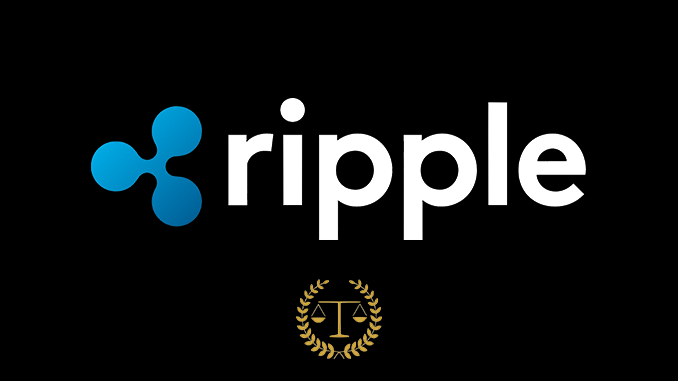
The court case of the US Securities and Exchange Commission (SEC) against Ripple (XRP) has been moving the crypto scene for eight months now. Time, therefore, for a mid-term review and a look at the fundamentals of this case.
The start of this crypto drama was already spectacular: Shortly before Christmas 2020, Ripple went public and warned: One should expect an indictment of the US Securities and Exchange Commission (SEC) because of XRP. The price of Ripple (XRP) went down as a result, even before the SEC itself published its lawsuit with a demand for damages of at least 1.3 billion US dollars the day after. Investors’ festivities were thus spoiled. In the months since, it has become increasingly clear that the SEC vs. Ripple showdown is about precedent. We have continuously reported on this and want to take an interim look at the essentials in ten points.
1 Neither SEC nor Ripple show any willingness to compromise. New SEC chief Gary Gensler has even announced that his agency will increase its scrutiny of the crypto industry. Ripple, in turn, has hired dozens of top lawyers and is trying to operate outside the U.S. as usual.
2. The SEC accuses Ripple and namely CEO Brad Garlinghouse and co-founder Christian Larsen of selling XRP with false information for years. A permission of the SEC for the sales for XRP had never obtained Ripple, although one knew there well that XRP was to be classified as “Securities”, thus as a security.
3. the process against Ripple was prepared by the SEC with long hand. Proceedings of the SEC, for example, against the messaging services KIK and Telegram for the issuance of their own cryptocurrencies were probably test runs for the SEC to hammer out court-proof strategies before the preliminary final opponent Ripple.
4. For the SEC prides itself on its history of not losing fundamental and high-profile cases. Here with XRP and Ripple, the SEC obviously wants to prove how many crypto projects systematically lie. The SEC’s job is to protect investors. Since it does not shy away from the giants of the financial industry, it has earned a lot of respect among US citizens.
5. core argument of the SEC against Ripple: XRP has never – as advertised – found significant use as a substitute currency. Even in the best years, at most 1.6 percent of all XRP served to speed up money transfers and save fees for banks and financial service providers. For that reason alone, he said, XRP should be interpreted as a direct stake in Ripple.
6 Ripple is consistently in the black – but not because of XRP, but because of its software, which is attractive to the financial world. This is readily purchased and used by banks – but the use of XRP in the process is not activated. Ripple has always lambasted around this information in its quarterly reports and avoided numbers. But the SEC has done the math and Ripple does not deny.
7. This tends to show that XRP is a cryptocurrency without utility or purpose. As a cryptocurrency, however, it was sold so that Ripple could escape regulation by the SEC and sellers could also make money from the executive floor. In this approach, the SEC sees a scam that has been and can be commonplace in other ICOs. 8.
8 Therefore, the SEC also wants to use the Ripple and XRP case to put pressure on U.S. policymakers to give it more rights and budget for the crypto industry in principle. Initial hearings in the court outside New York are imminent and are likely to reveal many an unsavory fact from internal communications at Ripple.
9 Ripple had initially hoped for solidarity from the crypto industry. That hasn’t kicked in – on the contrary, XRP has been consistently delisted from U.S. crypto exchanges. Instead, the SEC is encountering a middle-class audience that may have limited or no trust in the crypto industry.
10. For the SEC, a defeat in court would be fatal. For the crypto industry, the SEC would thus lose its terror. For Ripple, the end of XRP could also mean the end of the company and responsible parties would be privately ruined, if not behind bars.
Conclusion: litmus test Ripple and XRP
You can read about bubbles, scams, grotesques and risks of the crypto industry here with us as well as about the tremendous opportunities and innovations of this industry. In contrast to Bitcoin (BTC) and Ethereum (ETH), XRP lacks a concept that works out in reality – we have also been pointing this out for years and we also report on how Ripple organizes its daily business. Without being able to predict the outcome of the SEC vs. Ripple case, this case has the potential to set a new course for the crypto industry in the US.
Best place to buy Bitcoin and Ripple (XRP):

Leave a Reply